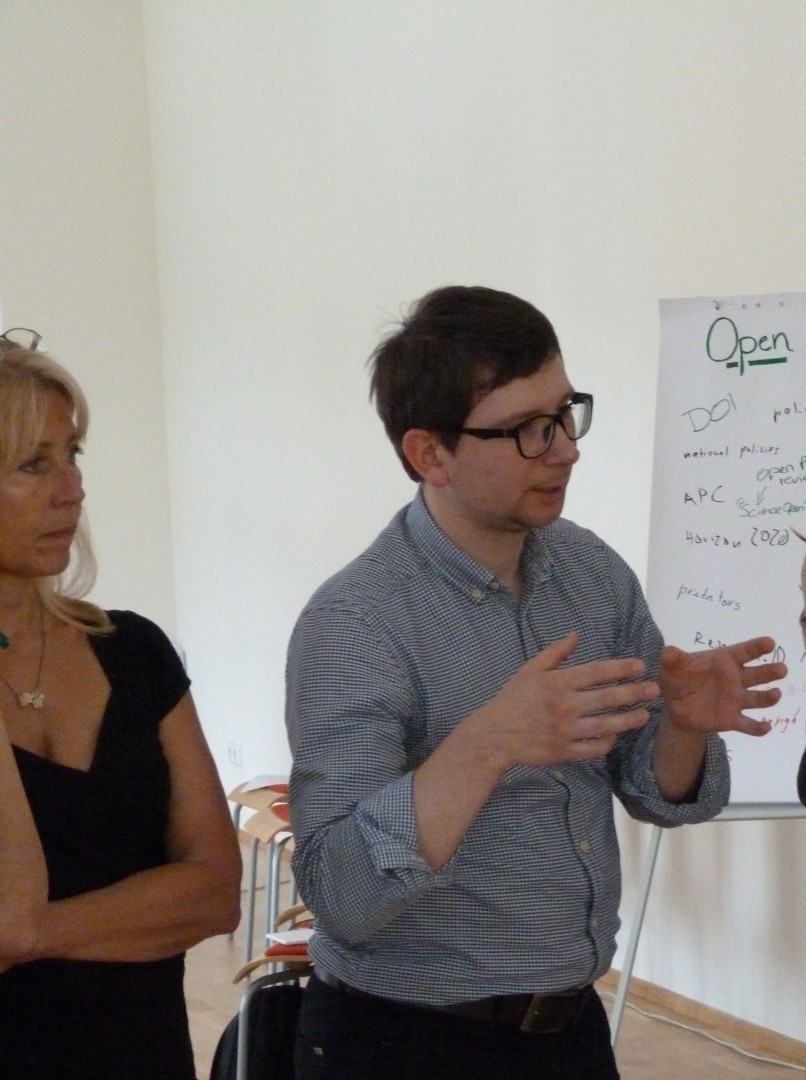The CEIPEX postdoctoral training activities aim to increase researchers‘ skills for jobs in and outside academia according to the current market requirements and EU research standards. The programme will further enhance the postdoctoral training provided by CEITEC. The improvements will focus on two primary directions:
1. Develop new training that will be comprehensive, up-to-date, and in line with current European standards.
2. Use these activities to build bridges among CEIPEX fellows, among CEITEC consortium partner groups and across the network of associate partner companies.
This will lead to an even and relevant improvement of the scope and quality of acquired hard and transferable skills, more efficient collaboration across CEITEC, and have collateral impacts on the regional R&I ecosystem.

The Researcher Development Framework (RDF by vitae.co.uk) serves as the foundation of our training requirements and provides essential guidance for the implementing partner to work with. Depending on the choice of discipline, the training programme will consist of acquiring advanced research skills (training-through-research) and transferable skills also needed for the future career development of researchers.
All awardees of CEIPEX Fellowships will have to attend network-wide training events. The training will be organized by JCMM with trainers from CEITEC and APs. In justified cases, training can be contracted – e.g. where the local knowledge may be significantly enriched by involving external experts (e.g. Czech ERC Expert Group). Two runs of training events will be organized to accommodate fellows from the two CEIPEX calls.
This training will present the basic concepts of research data management from the Open Science perspective and in accordance with the principle „as open as possible, as closed as necessary“, that is current state of art approach towards effective sharing of research data in the EU context. The trainees have the skills to apply FAIR data management in their future projects, including the CEIPEX fellowship.
Trainees will get a thorough understanding of the importance of methodology, ethics and law in science, of the basics and background of epistemological approaches in science. The participants will gain the skills needed to conduct and publish impactful research that will bring benefits to the society.
Invited experienced professionals in technology transfer from industry and academic organisations who have an excellent track record in bringing innovations to the market will share their stories with the fellows. Experts from the South Moravian Innovation Centre (JIC) will introduce the trainees into the world of spin-off and start-up business establishment. To counteract the entrenched “start-up only” local culture, special emphasis will be given to the path from start-up to a stable, profitable and thus sustainable business or company.
This interactive workshop will engage participants in communication of their science stories, with real-life scenarios letting them experience presentation on big-stage, or in certain media set-ups. Trainees will learn how to formulate a message that will engage citizens or other non-expert audiences and will get familiar with frequently used communication channels and their relevance for specific target groups.
The training will be organized as a discussion session with researchers with inspiring and diverse career paths: e.g. research group leaders in academia, start-up entrepreneurs, researchers in large enterprises, policy makers, research managers. Participants will be inspired to seek fulfilment of their personal needs and ambitions creatively within or beyond the world of academia.
The lecture will outline what to focus on when applying for research funding, explain how grants are evaluated and what are the specifics of grant writing style. Basic elements of project design and project management, including key terminology, will be explained to the fellows. Trainees will acquire skills that will help them apply for competitive funding.
Using real case studies we will explain malpractice of designing and interpreting research studies disregarding role of sexual and gender variables. The training will invite the trainee to think about gender contexts that may have influence on research variables and their interpretations, and equip them with basic awareness of possible sex/gender biases in designing research studies.
The training will present research ethics in all fields of science with the emphasis on researchers‘ integrity and ethical conduct of research, especially where living subjects are included (animals, humans). Ethics assessment and its description in studies’ designs or grant proposals, ethics reporting, as well as employing and applying ethics in related context, such as communication to different target groups (policy makers, citizens, students, children, etc.)
To prepare the fellows for the next career stage in academia or industry they will be asked to prepare a full-scale job application for an institution/company of their choice. The application will be evaluated by a committee consisting of experienced CEITEC PIs or APs. The committee invites fellows to a mock job interview where they present themselves according to the habits of the sector (e.g. research talk and future plans “chalk talk” for academia). This simulates a real interview process and includes immediate feedback on the performance in every step.